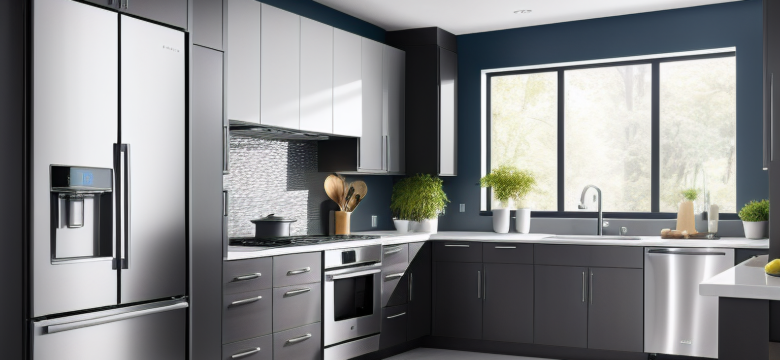In today’s fast-paced world, smart technology is not just a luxury; it’s becoming a necessity that transforms our daily lives in remarkable ways. Imagine waking up to a home that adjusts its temperature based on your preferences, brewing your morning coffee while you still dream. That’s the magic of smart homes! These innovations are designed to enhance our convenience, security, and even our energy efficiency. From smart thermostats to voice-activated assistants, the integration of technology into our living spaces is reshaping how we interact with our environment.
Moreover, wearable technology is taking personal health management to the next level. Think of a device that tracks your heart rate, sleep patterns, and even your stress levels, all from your wrist. This wearable tech not only helps you stay fit but also empowers you to take control of your well-being. It’s like having a personal trainer and a doctor rolled into one!
As we venture beyond our homes, smart transportation solutions are making travel more efficient. With innovations like smart traffic management systems and autonomous vehicles, getting from point A to point B is becoming smoother and more user-friendly. These technologies promise to ease urban congestion and enhance our overall mobility experience.
However, with great power comes great responsibility. While the benefits are undeniable, we must also consider the challenges that come with smart tech, such as privacy concerns and our growing reliance on these devices. Balancing innovation with security is crucial as we embrace this new era of living.
Looking ahead, the future of smart technology is bright, filled with endless possibilities that could further revolutionise our everyday lives. So, are you ready to embrace the change?
The Rise of Smart Homes
Smart homes are not just a futuristic dream; they are rapidly becoming a reality for many households around the globe. Imagine walking into your home, and with a simple voice command, the lights dim, your favourite music plays, and the thermostat adjusts to your preferred temperature. This level of convenience is what smart home technology brings to the table. The integration of devices such as smart speakers, thermostats, and security systems allows for seamless control of your living environment, enhancing both comfort and security.
One of the key features of smart homes is their ability to automate daily tasks. For instance, smart kitchen appliances can preheat your oven while you’re still at work, ensuring that dinner is ready when you arrive. This not only saves time but also makes life easier. Here are some benefits of smart home technology:
- Enhanced Security: Smart cameras and alarms provide real-time monitoring and alerts, keeping your home safe.
- Energy Efficiency: Smart thermostats learn your habits and adjust settings to reduce energy consumption.
- Convenience: Control all devices remotely via your smartphone or voice commands.
Moreover, the rise of smart homes is paving the way for a more sustainable future. By optimising energy use and reducing waste, these technologies not only benefit homeowners but also contribute to environmental conservation. As we embrace this technological shift, the question arises: are we ready to fully integrate smart technology into our lives? The answer seems to be a resounding yes, as more people recognise the potential of smart homes to transform everyday living.
Wearable Technology and Health
In today’s fast-paced world, wearable technology is transforming how we monitor and manage our health. These smart devices, often seen as mere accessories, are becoming essential tools in our daily lives. Imagine having a personal health assistant right on your wrist, tracking everything from your heart rate to your sleep patterns! With the rise of fitness trackers and smartwatches, users can now effortlessly keep tabs on their well-being.
These devices provide a wealth of information, empowering individuals to make informed health decisions. For instance, many wearables offer features such as:
- Heart Rate Monitoring: Continuous tracking helps in understanding cardiovascular health.
- Sleep Tracking: Insights into sleep quality can lead to better rest and recovery.
- Activity Tracking: Encourages users to stay active by monitoring steps and calories burned.
Moreover, the integration of wearable technology with health apps means that users can easily access their data, set goals, and even share information with healthcare providers. This level of connectivity not only enhances personal accountability but also fosters a proactive approach to health management. As we look to the future, the potential for wearables to contribute to healthcare—such as remote patient monitoring and chronic disease management—seems boundless. Truly, wearable technology is not just a trend; it’s a revolution in how we perceive and manage our health!
Smart Transportation Solutions
The world of transportation is undergoing a significant transformation thanks to smart technology. Imagine a city where traffic flows seamlessly, and you can get from point A to B without the usual headaches. This is becoming a reality through innovations like smart traffic management systems and autonomous vehicles. These technologies not only enhance the efficiency of our transport networks but also make them safer and more user-friendly.
Smart traffic management systems use real-time data to adjust traffic signals and manage congestion. For instance, sensors embedded in roads can monitor vehicle flow, allowing traffic lights to change according to the current conditions. This means fewer delays and a smoother ride for everyone. Meanwhile, autonomous vehicles are set to revolutionise our daily commutes. They promise to reduce accidents caused by human error and could also cut down on the number of cars on the road, leading to a decrease in emissions.
Moreover, the integration of ride-sharing apps and public transport solutions is making it easier for people to choose more sustainable modes of transport. With just a few taps on your smartphone, you can summon a ride or check the next bus arrival time, making public transport more accessible and appealing. As we embrace these , we are not just improving our travel experiences; we are also paving the way for a more sustainable future.
Impact on Daily Routines
Imagine waking up in the morning, and your coffee machine has already brewed your favourite blend, while the blinds gently rise to let in the sunlight. This is the magic of smart technology, seamlessly integrating into our daily routines to make life not just easier, but more enjoyable. From automated home assistants that manage your calendar to smart fridges that remind you when you’re running low on essentials, these innovations are transforming how we approach everyday tasks.
Smart devices are not just about convenience; they also enhance our productivity. For instance, consider how a smart scheduling app can optimise your day by suggesting the best times for meetings based on your availability and location. This kind of technology can significantly reduce the mental load of planning, allowing you to focus on what truly matters. But the impact doesn’t stop there; smart tech also plays a crucial role in simplifying household chores. With robotic vacuum cleaners, you can spend less time cleaning and more time enjoying life.
Moreover, the integration of smart tech into daily routines fosters a sense of control and awareness. For example, smart lighting systems can adjust according to your mood or the time of day, creating an atmosphere that enhances your well-being. It’s like having a personal assistant that understands your preferences and adapts to them, making your home not just a place to live, but a sanctuary.
However, it’s essential to remember that while these technologies can streamline our lives, they also require a level of adaptation. Embracing smart tech means being open to new ways of doing things, which can sometimes feel overwhelming. But once you get the hang of it, the benefits are undeniable. The question remains: are you ready to embrace the future and let smart technology transform your daily routine?
Challenges and Concerns
While the rise of smart technology is undeniably exciting, it brings with it a host of that cannot be overlooked. One of the most pressing issues is privacy. With smart devices constantly collecting data, users often wonder: just how much information are we sharing? From our daily routines to our health metrics, the data collected can be a goldmine for companies, raising questions about who has access and how it’s being used.
Moreover, there’s the concern of reliance on technology. As we become more dependent on smart solutions, what happens when these systems fail? Imagine waking up to a malfunctioning smart alarm or a broken thermostat in the middle of winter. The convenience offered by these devices can quickly turn into a headache if they don’t function as intended.
Another significant concern is the potential for cybersecurity threats. As more devices connect to the internet, the risk of hacking increases. A compromised smart home system could lead to unauthorized access, making it crucial for users to stay vigilant and ensure their devices are secure. In fact, a recent study found that
| Device Type | Vulnerability Rate (%) |
|---|---|
| Smart Cameras | 30 |
| Smart Thermostats | 25 |
| Smart Locks | 20 |
highlights that certain devices are more susceptible to attacks than others.
In conclusion, while smart technology can enhance our lives in numerous ways, it’s vital to approach its adoption with caution. We must weigh the benefits against the potential risks, ensuring that our journey into this brave new world is both innovative and secure.
The Future of Smart Technology
The future of smart technology is not just bright; it’s positively dazzling! As we venture further into the 21st century, innovations are emerging at a breakneck pace, promising to transform our lives in ways we can only imagine. Picture a world where your home anticipates your every need, your health is monitored seamlessly, and your commute is a breeze. Sounds like science fiction? Well, it’s closer than you think!
One of the most exciting prospects is the rise of artificial intelligence (AI) integrated into everyday devices. Imagine your fridge not only keeping your food fresh but also suggesting recipes based on what you have inside. Or consider smart mirrors that provide real-time health data while you get ready in the morning. These advancements will redefine our interactions with technology, making them more intuitive and personal.
Moreover, the evolution of 5G technology will supercharge connectivity, allowing devices to communicate faster than ever. This will enable a new era of smart cities, where traffic lights adjust to real-time conditions, reducing congestion and emissions. The possibilities are endless, but with great power comes great responsibility. We must remain vigilant about privacy and security to ensure this technological revolution benefits everyone.
As we stand on the brink of this new era, it’s essential to embrace the change while also considering the implications. The future of smart technology isn’t just about convenience; it’s about creating a sustainable and connected world that enhances our daily lives.
Frequently Asked Questions
- What is a smart home?
A smart home is a residence equipped with devices that can be controlled remotely via a smartphone or computer. These devices enhance convenience, security, and energy efficiency, making daily tasks easier and more efficient.
- How do wearable devices improve health?
Wearable devices, like fitness trackers and smartwatches, monitor vital signs, track physical activity, and provide insights into overall health. They empower users to take charge of their fitness and well-being by offering real-time data and personalised feedback.
- What are smart transportation solutions?
Smart transportation solutions include technologies that optimise traffic flow, enhance public transport systems, and enable autonomous vehicles. These innovations aim to reduce congestion, improve safety, and make commuting more efficient.
- Are there privacy concerns with smart technology?
Yes, while smart technology offers numerous benefits, it also raises privacy concerns. Data collected by smart devices can be vulnerable to breaches, so it’s crucial to implement strong security measures and be aware of data sharing practices.
- What does the future hold for smart technology?
The future of smart technology looks bright, with advancements in artificial intelligence, machine learning, and IoT (Internet of Things) promising even greater integration into our daily lives. Expect smarter devices that learn from user behaviour and adapt to individual needs.





